|
I always enjoyed a challenge. Loved to find the edge and see how far past it I could go. Unfortunately, this was also how I dealt with self-care. Internally, it was a badge of honor that I could get by with so little. (Now, as I actually type the words it seems INSANE, but this was how I lived for most of my life.)
In my Postpartum Doula work it was clear that moms who took better care of themselves had better healing and adjustment. The moms who had the best postpartums were the moms who knew what they needed, voiced their needs, and took action to meet those needs. By the time I had my third, I was able to be one of those moms. I stayed in my room for almost 3 weeks. For the first time, I did NOT get mastitis or other infections. I actually felt like normal self--not like a refugee on the brink of survival. (which, by the way, is absolutely how I felt for MONTHS after my first two births) It took me longer to fully understand my resistance to self-care....But I fully embrace it now! When I catch myself being impatient or cranky, it's almost always because I skipped some basic need. i.e. being tired, literally not eating when I should, etc. It's much easier to take care of the need or make a plan to do it soon than to battle the internal shame spiral! It's exciting to see self-care becoming more prominent in the world of motherhood....Yet, this ideal of martyrdom lurks in our subconscious programing. When I feel it creeping in, I think about the oxygen mask on planes....Take care of yourself first, so that you're actually ALIVE to help others. Do you think moms get the message to take care of themselves? Do you feel like you should be able to do it all by yourself? Does asking for help feel like a vulnerability to you? What do you do to take care of yourself? What fills your cup? Please share your experiences and thoughts. I want to see mothers flourish at every stage. I doubt I'm the only one with these self-sabotaging tendencies. Photo By: Megan Gray Photography
0 Comments
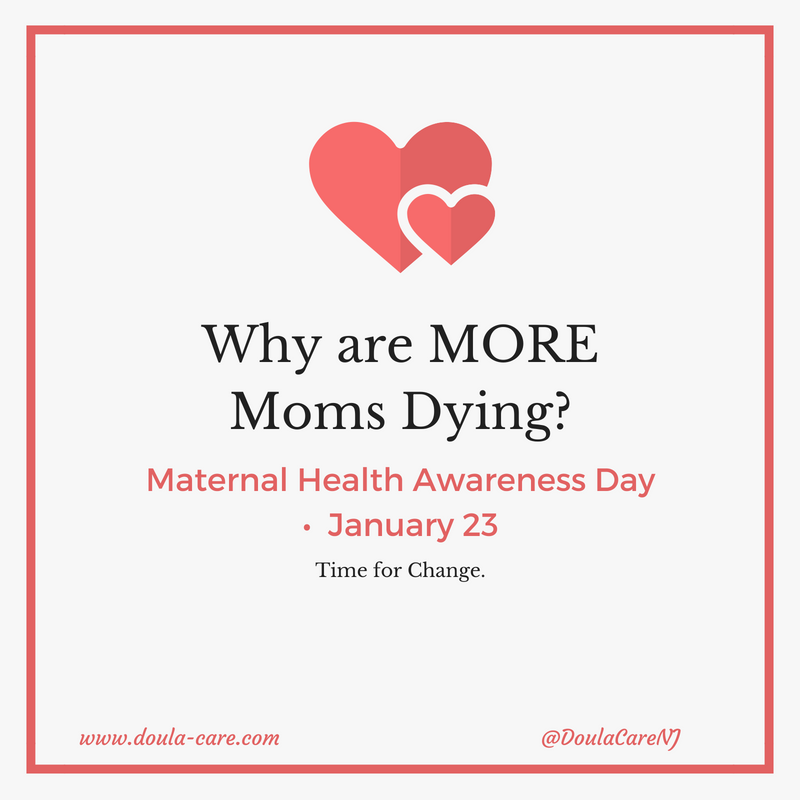 We are the only industrialized country with RISING maternal mortality rates. Perhaps, like me, you are shocked. On average, 2 women die each day following childbirth in the U.S. One Hundred more have complications severe enough to be re-admitted to the hospital. I'm still struggling to get my mind around this. But, the good news is, 40-50% of these deaths are preventable. And, 30-40% of severe complications are preventable. Where do we begin? 1: WOMEN-CENTERED CARE We have a history of focusing on the babies to the exclusion of the mothers. The moms are often an after-thought in prenatal care, birthing and certainly in Postpartum. A woman's emotional, mental, and physical health have a tremendous impact on their baby's health and survival. What if we started truly listening and responding to women's needs and concerns? Tragically, the stats are far more bleak for minority women! "African American women are five times more likely to die as their white counterparts." 2: FOLLOW-UP CARE FOR HIGH RISK PATIENTS Most maternal deaths are from obstetric hemorrhage and severe hypertension or preeclampsia. Typically, these moms leave the hospital and are not scheduled for any follow-up care for 6 weeks. Dr. Karen Koscica said that all high risk patients should be seen 1-2 weeks postpartum. 3. POSTPARTUM RECOVERY EDUCATION While most other countries and cultures have a lying-in period (where new mom stays in bed for 2-5 weeks), we have NOTHING here. Often just discharge papers saying not to drive for 2 weeks. These moms are coming home 2-3 days after birth, some after major abdominal surgery, and there is no support or help in place. The physical demands of postpartum recovery are HUGE....especially since most women are trying to heal from pregnancy, birth, and possibly surgery, while waking every 2-3 hours to care for a newborn and breastfeeding! We can do better! We can prepare moms for what to expect and help them choose postpartum care. We can educate partners, friends and family on how to take care of mothers while they recover. I hope to see Postpartum Doulas covered and or the expense reimbursed by insurance...But, in the meantime, we can realize that the stakes are literally life or death. For more information, please visit: http://www.tarahansenfoundation.com/www.tarahansenfoundation.com/ http://www.nj.gov/health/news/2018/approved/20180123a.shtmlwww.nj.gov/health/news/2018/approved/20180123a.shtml When my second baby went transverse, I panicked. I was having a healthy pregnancy, and it was such a shock. Babies can move, flip and completely change their position. (If your baby has suddenly gone breech or transverse, keep reminding yourself of this fact!)
Here's how you can increase the chances of your baby getting into the optimal position (head down!). !--Get to a Webster Technique Certified Chiropractor. To find one near you, use this link: http://icpa4kids.org/Find-a-Chiropractor/ 2--Cat/Cow yoga position on all fours. Make more room for your baby to get in the best position 3--Swim Reduce gravity on you and your baby to make it easier for your baby to move. 4--Do your best to relax and trust your baby and your body. Ask your baby/body what they need to get in the best position. 5--Spinning Babies. An amazing wealth of information resources. https://spinningbabies.com/ 6--Acupuncture 7--Manual Version or External Cephalic Version. You can only do what you can do. If you try everything on this list and your baby still doesn't turn, there is nothing left but surrender. Some things are beyond our control. Nothing hammers home this lesson more than parenthood. Unlike your wedding, birthday or graduation gifts, your baby gift arrives when you are in recovery. A unique recovery that requires you to wake every 2-3 hours to take care of a tiny human. The last thing you need is another thing to do.
Help me end, (or at least extend!) the ridiculous baby gift thank you note writing. If you send a baby gift, offer an easy out for the new mom. "A text message is plenty acknowledgement, thanks!" Or, get shipping confirmation so you know she received it. Or, tell her you'll be offended by any correspondence within 6 months. If you'feel obligated, here are a few shortcuts: --Use a newborn picture for Thank You Notes or postcards. It makes it more personal with less time. --Have Dad or your partner do it. (At least they are not dealing with the physical recovery from pregnancy and birth or lactating.) --Your Postpartum Doula may or may not use a script to help you write them. I want to make life easier for parents and stressing about Thank You Notes for baby gifts seems so unnecessary. Seriously, if you are judging someone for not sending a thank you note for a baby gift, you're probably not a meaningful person in their life. Just sayin. #NoThankYouNeeded #BabyGiftsNoThankYous Not everyone can have a Postpartum Doula. So, whether it's not in your budget or not available in your area, here are the keys to being your own Postpartum Doula. Believe me when I say, it is worth making the time to prepare! Start preparing before the beginning of your third trimester.
If this is your first baby, imagine being in bed for a month. What will be the hardest for you to let go of? What scares you the most? Use your answers to prioritize your Postpartum Plan. *Physical Needs: You will need food--both meals and snacks. Breastfeeding moms are often hungrier than they were in pregnancy with little to no time to make food. --Find local grocery delivery services (Whole Foods, Pea Pod, etc.) or at least online ordering so someone else can pick it up for you. --Prepare and freeze at least 2 weeks worth of meals or arrange to have dependable friends or relatives bring meals. --Snacks are vital! Think densely nutritious and easy to eat with one hand. (I love Kind Bars.) *REST: If you want to have a speedy recovery, avoid complications/infections, and reduce your chances of developing Postpartum Depression, you must prioritize rest. Your body will go from pregnant to recovering from birth & pregnancy and possibly lactating within a matter of minutes. These are massive physical demands while caring for a newborn and getting broken sleep. The more you rest in the first couple weeks, the better you will recover. This means someone else needs to handle all the stuff you normally do. If your partner can't take over laundry, house cleaning and pet care, find someone who can. *Comfort Measures It's best to just stock up on these items....You might not need them all, but it's better to have them! --Epsom salts --Postpartum Belly Binder/Girdle (especially with C-section recovery, but helpful for all!) --Tucks pads and hemorrhoid cream --3 week supply of pads --Probiotics (especially if you're given antibiotics in the hospital or have a C-section) *Breastfeeding Resources Hopefully your hospital or birth center will provide you with resources, Either way, look up your local La Leche League and Lactation Consultants in advance. *Connection You were never meant to do this alone! It's really important to connect with other mamas who are (or have recently been) going through what you're going through. If you are lucky enough to have friends nearby who fit the bill, awesome! If not, find the other moms. Social Media is a poor substitute. Monmouth County moms, check out these resources. *Other kids? If you have other kids, who can help take care of them? Depending on your child's age, you might consider grandparents, relatives, babysitters....Even the most well-adjusted and independent children need extra attention and reassurance when a new sibling enters the family. Also, read at least one of these books: The First 40 Days: The Essential Art of Nourishing the New Mother The Year After Childbirth by Sheila Kitzinger The Mommy Plan by Valerie Lynn Wishing you a peaceful and restful fourth trimester! I will always remember my Blessing Way. My closest friends gathered just before my third child was due. We whispered our worries away. My belly was ornately decorated with henna (temporary plant stain). We belly danced together. I was utterly overwhelmed by the love and support that poured from them.
One of my favorite parts was creating a bracelet with a bead from each woman--even the ones who couldn't physically be there. I loved wearing that tangible reminder of our connection as I reached the end of my pregnancy. The big difference between a Blessing Way and a Baby Shower is the focus on the mother. In a Blessing Way, the mother is lifted up and celebrated. She is empowered and nourished in preparation for birth. Doesn't that make sense? Doesn't that just resonate? I know that receiving that support helped me heal the wounds and traumas from my previous birth....and successfully deliver my biggest baby--8 pounds, 5 oz. I was honored to recently attend a Blessing Way and witness again how profoundly meaningful and powerful these gatherings are. Elements can easily be incorporated into a traditional baby shower or it can be held separately. Can we please just stop pretending like mothers don't matter? Mothers NEED to be supported, nourished and empowered much more than they need baby clothes or gear. Spread the word. Postpartum is its own THING. Not a comma between birth and baby,
but a separate stage, equal to pregnancy and birth as a distinct transition. Postpartum is literally where the rubber meets the road--it's weaving together the ends of pregnancy and birth with the beginning of your new life. It will dictate how your baby's first weeks and months are experienced. After birth, a woman needs to recover, process and heal....And yet, she also needs to be with and care for her new baby. This is why it is critical to have support and help from her partner, family, community, and possibly a Postpartum Doula. While the need is great, the parts of us that communicate needs and delegate tasks are scrambled by fatigue, hormones, and fear of being judged or denied the help we need. If you're pregnant, make a plan for your Postpartum! Plan for meals, laundry, dishes, etc.--especially if your partner has limited time to be with you or isn't able to do all by themselves. There is so much we can do as a culture to make this stage of integration, healing and bonding better for all: 1--Acknowledge the physical demands are real. (Your body moves from pregnancy to postpartum/lactating in a matter of minutes. Organs have been displaced and will be shifting. Add surgical recovery to the mix for c-section moms. All of this, and now very broken or little sleep.) Going slow, being still and conserving your energy are vital. 2--Remember: YOU WERE NEVER MEANT TO DO THIS ALONE. Nearly every continent and culture has a tradition for caring for Postpartum: Asia, Africa, South and Central America, Europe and India. They understand the dangers and complications of moms trying to resume their daily lives before they have fully recovered. Most involve moms being in bed with their babies for 10-40 days while others bring them food, clean their house, and care for their other children. 3--If you are struggling, reach out. Postpartum does not have to be something you "survive" or "get through." It can be a beautiful time as you get to know your baby. find your way into motherhood, and help your other children adjust and step into their new roles. Monmouth County is full of amazing resources. (See my list here.) Or contact me directly. As parents, we face an overwhelming amount of decisions. It’s tempting to avoid the additional research and contemplation on circumcision…..But, we’re talking about surgery. It’s worth some discussion--even if it feels uncomfortable.
This is a scary one for me. I’ve worked with many families who chose to have the procedure done. As a Postpartum Doula, non-judgmental support is crucial to the work I do. I believe you are the best person to make these choices for your baby. I respect and support your decisions for your family--even if they differ from my own. In the first days of life, your newborn is learning how to breathe, swallow, eat, regulate their own body temperature, as well as processing new stimulations on every level. Why add surgery and recovery to that burden? Circumcision rates vary and are dropping. Currently in the US it’s around 54%. The midwest having a vast majority of circumcision, while the West Coast is around 40%. When these babies reach adolescence, there will a pretty good mix of intact and circumcised boys. It remains an elective procedure. Many health insurance companies do not cover it, and in many states, Medicaid will not cover it. "The health benefits are not great enough to recommend routine circumcision for all male newborns...." according to the American Academy of Pediatrics. I believe that every part of the body serves a function--even if we are yet to understand it fully. I’m hesitant to advocate for the permanent removal of any body part before an individual is old enough to give informed consent. Also, a circumcision can be chosen and performed at any point in a boy’s life….But it can never be undone. What is the benefit of removing the foreskin? It’s not easier hygiene. An intact penis requires no care whereas a circumcised penis requires fresh bandage at every diaper change until it heals. A one percent reduction in the risk of urinary tract infections. Decreased risk of STDs and certain cancers. If you choose to circumcise, consider the timing. Does it need to happen in the first 48 hours? I find it fascinating that newborn vitamin k production appears to kick in on the 8th day of life, which is also when a bris is traditionally performed. Traditionally, circumcisions have been performed with NO PAIN RELIEF or anesthesia. The medical community stated that newborns do not feel pain. There are several studies that prove this is completely untrue. Ideally, seek anesthesia for your newborn, as this is probably what you would want for yourself in that situation. For additional information on circumcision, check out Ask Dr. Sears. Do you have a hard time asking for help?
My people! Postpartum is especially tricky for those of us who have difficulty here. Our culture has created an elegant trap. First, we deny Postpartum Recovery is a thing. ("Women out in the fields used to give birth, tie the baby to their back and get back to the crops!" Ummmmm. not really. In fact, the vast majority of cultures have a traditional "lying in" period where the new mom goes to bed for about a month.) Second, we pretend like your strength will be measured by how quickly you get back to "normal." (Recall countless tabloid pics of celebrities looking as if they were never even pregnant weeks afterwards....Note their army of personal trainers, chefs, nannies, stylists are rarely pictured.) You are not supposed to "get back to normal." You brought a new human into the world. You are not meant to resume life as it was before immediately. We are designed to SLOW DOWN and FIND A NEW NORMAL. A new way of being in the world with our baby. When I had my first baby, I was emotionally overwhelmed and had not prepared at all for Postpartum. What limited "help" was available was only interested in holding my baby. I didn't trust myself enough to explain what I really needed and I didn't believe they would actually help me with food, laundry, etc. My recovery took at least 4 months. But I was not the only one who paid the price for not knowing any better....My baby missed out on having a healthy, functional intact mother for that time. It can make us feel vulnerable to ask for help. We might be afraid of being judged or even denied. I get it! But, Postpartum is all about stretching into new and uncharted waters. When I had my third baby, I committed to Doulaing myself. I basically stayed in my room for 3 weeks. I graciously accepted meals and friends' offers to take my kids out. And you know what? I was HEALED and recovered by the 4th week. (I was 9 years older than when I had my first, and this was my biggest baby, too!) I gradually eased back to a manageable pace after that. But it was an absolutely amazing contrast to my first and second postpartum experiences. If you get tripped up thinking it is not "necessary" or you're somehow not deserving of the help, think about your baby. Your baby deserves a healthy mama--not one that is struggling with avoidable complications or barely functional. Make a plan for your Postpartum Support. Be brave enough to ask for help when you need it. And, if you are struggling, please reach out. I can help connect you with resources and all communications are completely confidential. Contact me. Or check out some of the amazing resources and support available to Monmouth County moms here. Planning to visit someone who just had a baby? Here's what you need to know to be the absolute best visitor they've ever had.
1--Don't expect to see the baby in the first week or two. Wait for an actual invite. As excited as they are for everyone to see the baby, they also need a little time and space to recover. 2--BRING FOOD!!! Please, please, please! Breastfeeding mamas are especially hungry and meal preparation is difficult with a newborn. Feeding the family is one of the most helpful and loving things you can do. 3--Wash your hands as soon as you arrive. 4--Ask the parents how you can help. If possible, make a specific suggestion. "Do you need anything from the store?" "Can I empty your dishwasher?" "Can I take your other child/ren to the park or on a playdate?" 5--Keep it SHORT. About an hour to an hour and a half, depending on the situation. 6--Be POSITIVE. Remember most new parents are sleep deprived and particularly vulnerable. So, keep your opinions and any contradictory parenting advice to yourself. Offer encouragement and support. |
AuthorPostpartum Doula, Breastfeeding Counselor, Mother of Three. Archives
May 2018
Categories
All
|
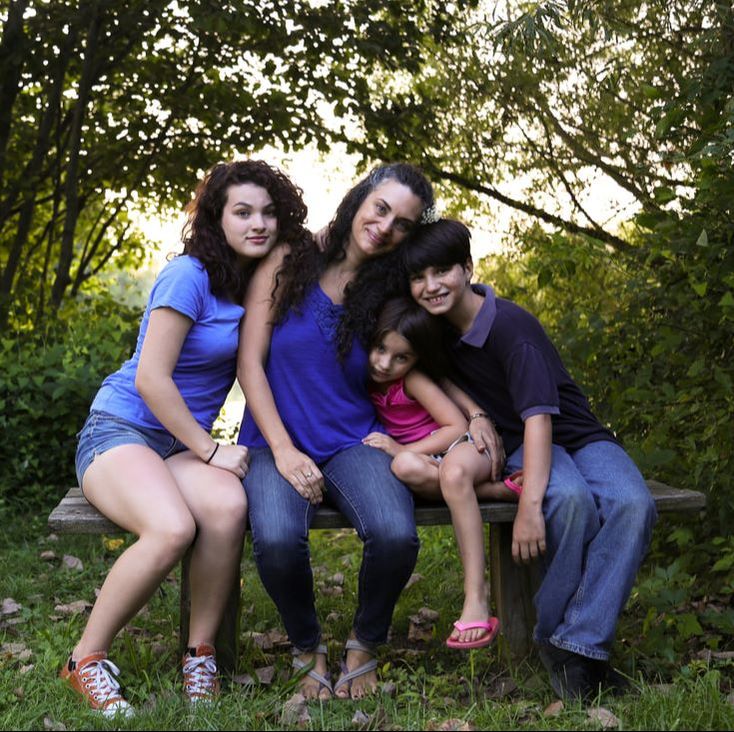

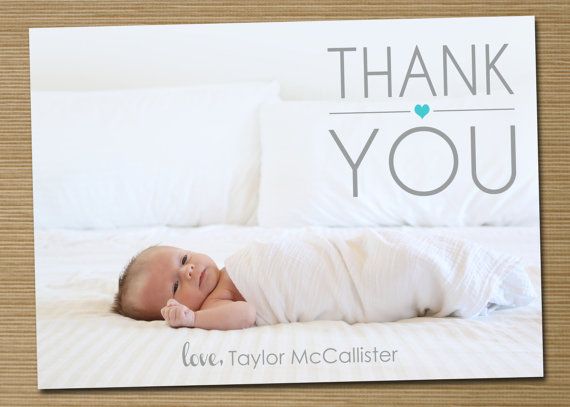
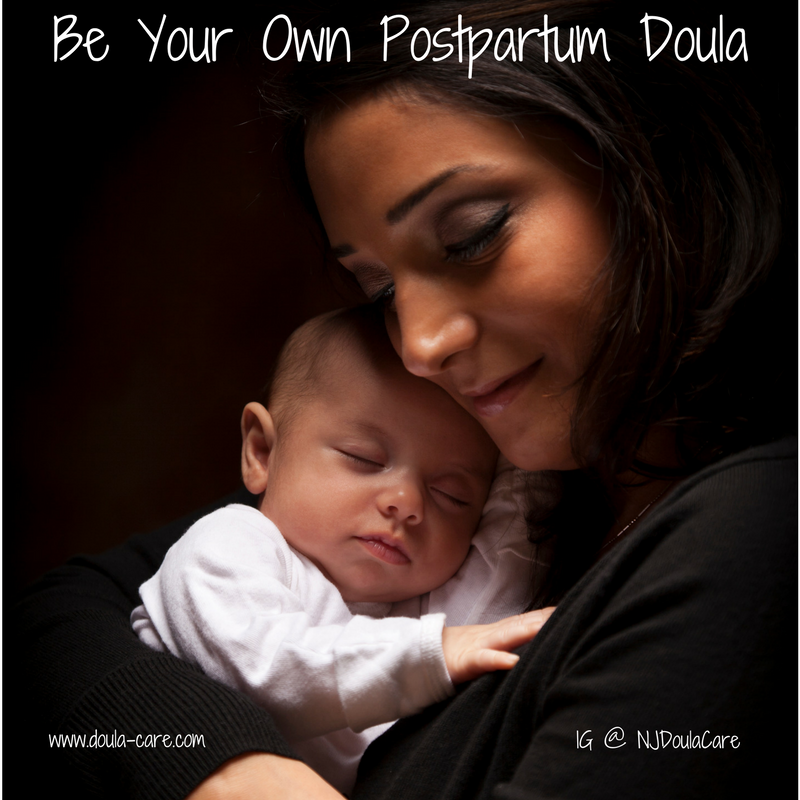

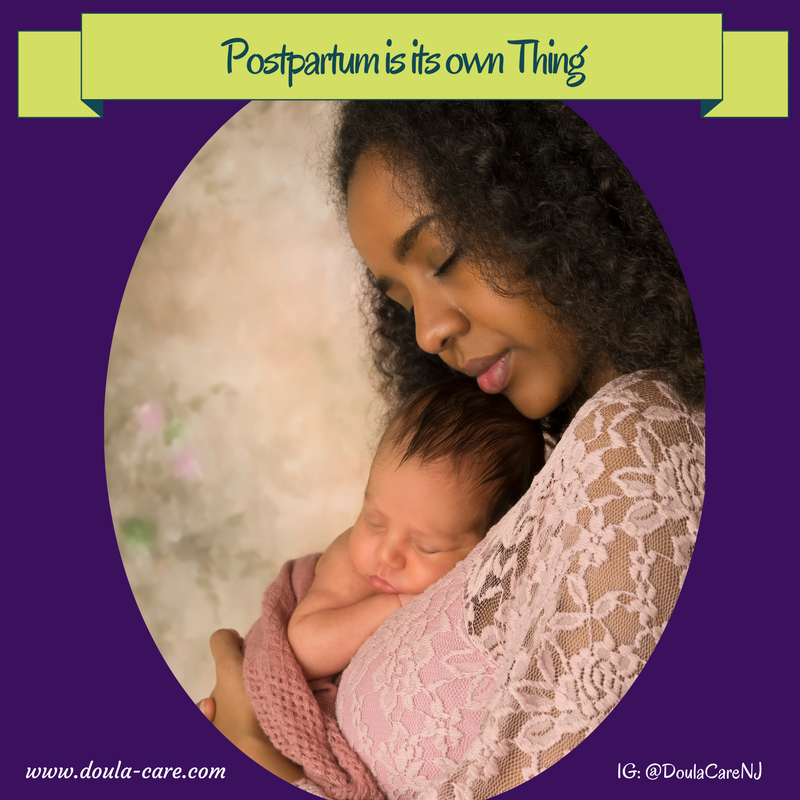
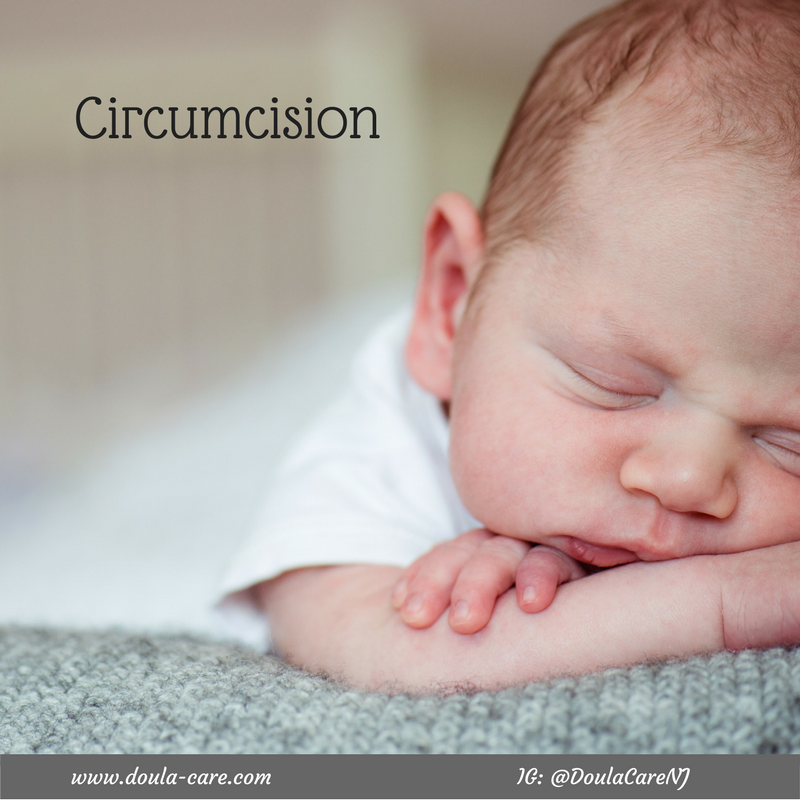
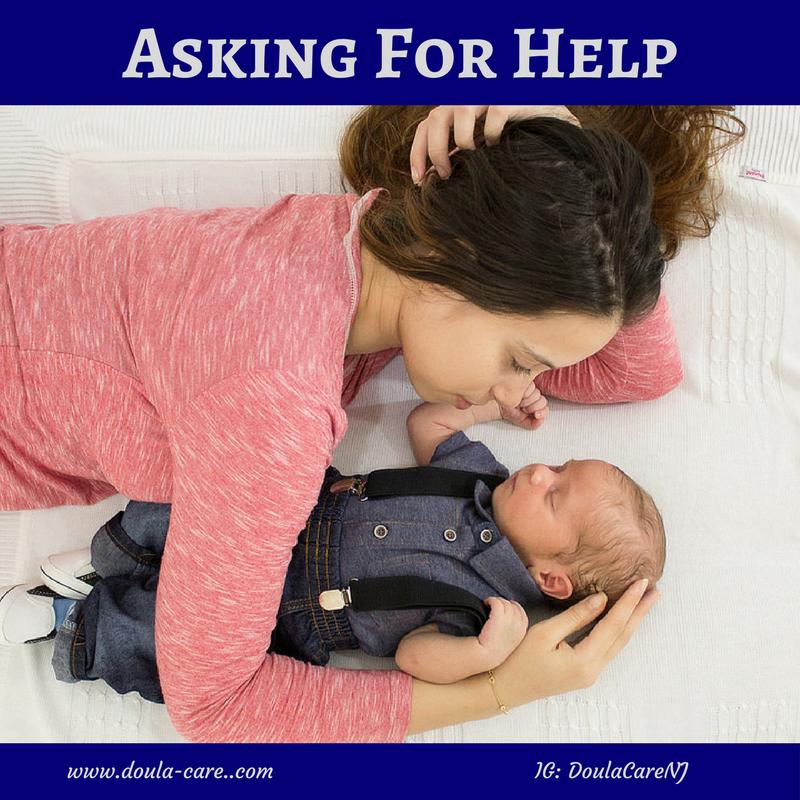

 RSS Feed
RSS Feed
